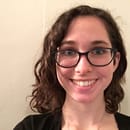When you find out that your final for class is actually a paper, at first you’re excited. This means you don’t have study. Then you realize you’ll spend more time and effort writing the paper than you would’ve spent taking a test. You read the prompt five times, but writer’s block sets in. What’s there to write about? How can you possible reach the page limit? If you’re reading this article instead of writing your paper, take a breath and read on for tips on how to get started.
Getting Started
The hardest part of a paper is usually coming up with the ideas and starting to write. If your prompt is open ended, pick the most interesting story, poem, or concept from the course and brainstorm ideas about it. If you pick something you kind of care about, then thinking and writing about it will be easier. If you can choose from several prompts, pick the one that you have the most ideas about. By picking a prompt that you’ve already thought about a little bit, then you have a head start on the outlining process.
Some people sit down and immediately start writing. I am not one of those people. I usually write down my general thesis, my main ideas, and different pieces of evidence, and then I connect them together. This helps me organize my thoughts and form my ideas more fully before I start writing. If you start with a plan for organization, then you won’t have to move paragraphs around later.
Now that you’ve thought through your topic, it’s time to write. It is okay to write a terrible first draft as long as you fix it later. My introduction paragraphs are always rough the first time around. For my senior thesis, I actually wrote my introduction after the body paragraphs. So if it’s tripping you up, skip the introduction at first. Write the body paragraphs. Let yourself get all of your ideas out. Don’t edit yourself before you’ve even written. It is so much easier to write a very rough draft and edit it than it is to try to get the words right the first time. No one gets it right the first time.
Meeting the Page Requirement
You’ve been writing for awhile and you want to be done, but you’re a few pages short. This is usually when people start repeating themselves and adding fluff. Don’t do that. It will only make editing your paper more difficult, and you’ll have to write more later. Instead of falling into the temptation of repetition and rambling, either find more evidence to support your argument or take your ideas further. Elaboration isn’t restating what you’ve already said, but taking what you’ve already said and applying it to a broader idea. Ask yourself, why is this claim important? Then make sure that your paper is answering this question.
Editing
Don’t turn in your first draft. My freshman year I would write a paper and turn it in right away without talking to my professor or looking over my work. I got lower grades on my papers because of this.
Take the time to make sure your ideas are connecting. You know what you want to say, but are the words reflecting your ideas? Will other people be able to understand your paper?
Have someone else read it. Other people will be able to help you catch mistakes and will be able to ask you questions about your paper that you either hadn’t thought of or that aren’t being fully answered.
Read the paper out loud. This will help you catch sentences that aren’t flowing. If you trip over the sentence, then other people will too.
Double check your citations. Citation machines seem helpful. They do the tedious work for you. But they aren’t always right. Double check that the punctuation is correct and that your citations are in the correct style (APA, MLA, etc.).
While writing a paper for your final can seem like a lot more work, you can write it in your own time and get it done as early as you’d like. You get to choose how much time you spend on it and when you spend that time. You could write the paper in the middle of the afternoon or at midnight. Plus, you can look up information to help your argument. You don’t have to memorize anything. Even if you hate writing, doing a paper on your own time allows for more flexibility than taking a test and hoping you studied everything that you need to know.


